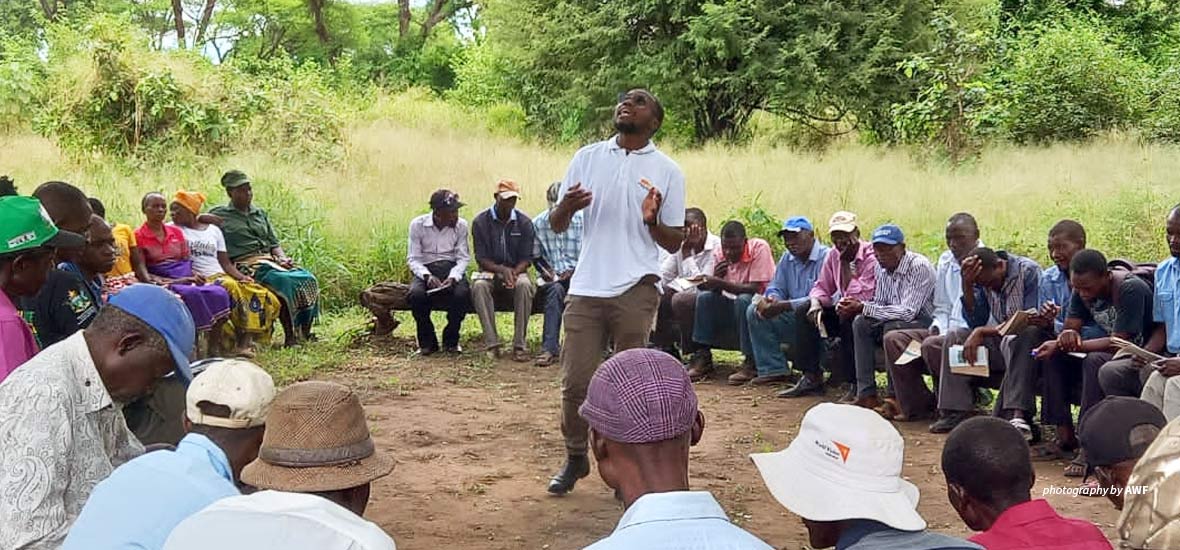Putting People at the Center of Conservation

AWF sensitizes communities in the Mid-Zambezi landscape on how to mitigate human-wildlife conflict and adopt conservation-friendly livelihood activities
At AWF, we believe conservation will only succeed in Africa if it is linked to the aspirations of Africa’s people. That is why we emphasize strategies at the intersection of conservation and development. We focus on creating opportunities for people not at the expense of wildlife and habitats, but because of them. We emphasize coexistence. We promote African agency. And we believe in the rights of local communities to define and lead conservation solutions that are in their long-term best interests as well as the long-term best interests of wildlife.
To create economic opportunities that balance nature and development, we partner with African institutions, civil society, businesses, and rural communities to put people at the center of conservation. Our inclusive, collaborative approach is at the heart of our mission because we know traditional knowledge and local stewardship of natural resources are essential for conservation to succeed in the long run.
This means communities must be at the conservation table as decision-makers and problem-solvers. AWF engages local stakeholders as partners, acknowledging their role as custodians of Africa’s natural heritage and working to ensure their rights are respected. We also work to empower networks of local leaders to drive an African conservation agenda from the ground up. Connecting the dots between what happens on the ground to what is decided at national and even global policy tables is an important part of our work. Without those linkages, action at the community level can’t scale.
We know conservation is not just about safeguarding wildlife habitat. It is about adapting to and mitigating climate change, preserving healthy and productive ecosystems, and ensuring a sustainable future for both people and wildlife. The urgency of our mission in the face of these rapid changes underscores the importance of everyone’s role in protecting and conserving Africa’s natural heritage and the essential role played by rural communities on the front lines of living with wildlife.
>>Read more about community-led conservation in our Resilient Africa newsletter.